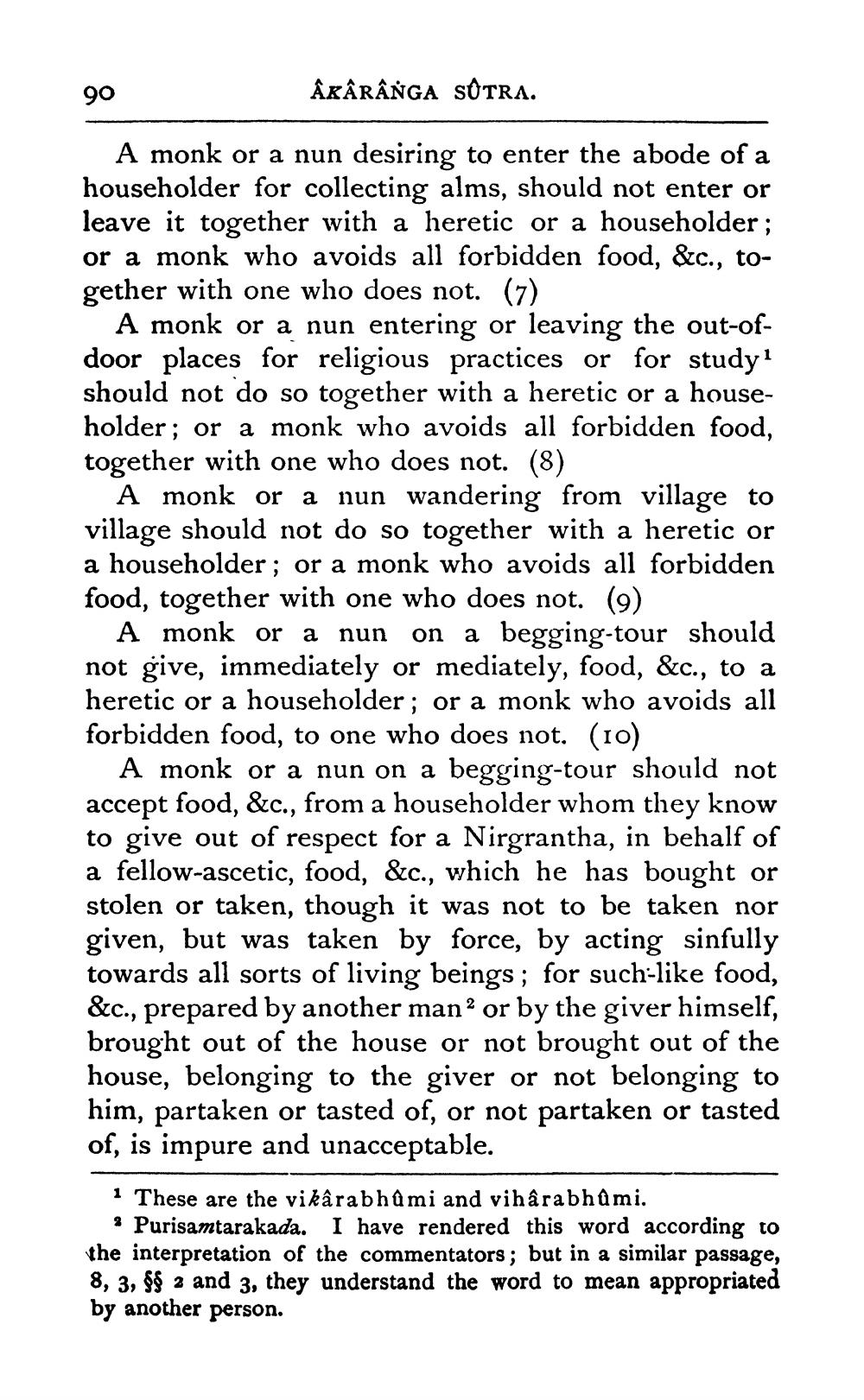________________
90
ÂKÂRÂNGA SÚTRA.
A monk or a nun desiring to enter the abode of a householder for collecting alms, should not enter or leave it together with a heretic or a householder; or a monk who avoids all forbidden food, &c., together with one who does not. (7)
A monk or a nun entering or leaving the out-ofdoor places for religious practices or for study should not do so together with a heretic or a householder; or a monk who avoids all forbidden food, together with one who does not. (8)
A monk or a nun wandering from village to village should not do so together with a heretic or a householder; or a monk who avoids all forbidden food, together with one who does not. (9)
A monk or a nun on a begging-tour should not give, immediately or mediately, food, &c., to a heretic or a householder; or a monk who avoids all forbidden food, to one who does not. (10)
A monk or a nun on a begging-tour should not accept food, &c., from a householder whom they know to give out of respect for a Nirgrantha, in behalf of a fellow-ascetic, food, &c., which he has bought or stolen or taken, though it was not to be taken nor given, but was taken by force, by acting sinfully towards all sorts of living beings; for such-like food, &c., prepared by another man? or by the giver himself, brought out of the house or not brought out of the house, belonging to the giver or not belonging to him, partaken or tasted of, or not partaken or tasted of, is impure and unacceptable. 1 These are the vikârabhůmi and vihârabhūmi.
Purisamtarakada. I have rendered this word according to the interpretation of the commentators; but in a similar passage, 8, 3, $$ 2 and 3, they understand the word to mean appropriated by another person.




